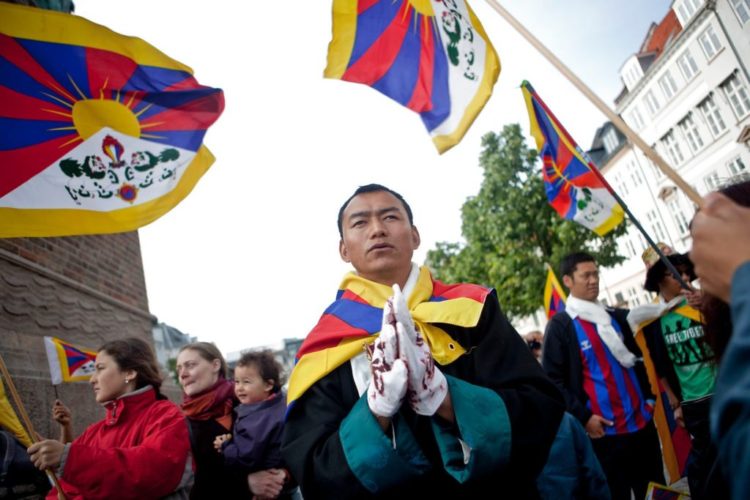
The Tibet Commission in Denmark has over the past five years conducted hundreds of interrogations digging deep into the Danish authorities’ actions during official visits to Denmark and on 25 June those came to an end. For now at least because new material keeps coming in, JydskeVestkysten reports.
To understand the case, we need to start with the basics. The Tibet Support Committee Denmark is the framework for a Danish commitment to improving the conditions of the Tibetan population by supporting their non-violent struggle for freedom, human rights, democracy, and independence. The Tibet commission has been investigating whether the Danish Constitution has been compromised by a culture in the Ministry of Foreign Affairs, where consideration for the country’s relations with China was taken into account rather than the most basic democratic freedoms.
Time and time again, peaceful protesters from, among others, the Tibet Support Committee and the Falun Gong movement have been prevented from expressing their dissatisfaction with conditions in China to Chinese representatives in Denmark. The Danish Constitution ensures the right of citizens to assemble freely. It also ensures the freedom of citizens to express themselves. And it not only gives citizens the right to demonstrate, but also the right to be heard and seen.
Back in December 2017, The Tibet Commission ruled that the police had acted “clearly illegally” when protesters in 2012 were deprived of Tibetan flags and otherwise shielded so that they were not visible to the Chinese delegation visiting Denmark.
Shortly after however new information emerged partly in the form of recreated emails on magnetic tapes found in a basement under the Ministry of Foreign Affairs after the commission released its first report in December 2017. These emails were a significant reason why the then Minister of Justice Søren Pape Poulsen reinstated the commission in 2018 with a mandate to also investigate whether other authorities had been involved in the orders that the police were working on.
After Friday’s last interrogation, Anders Højmark Andersen, chairman of the Tibet Support Committee who has been following the interrogations carefully attached importance to these mail correspondences as they have revealed that although it is only the police’s job to ensure security around demonstrations, there has been remarkable interference, especially from the Ministry of Foreign Affairs.
According to the plan, the interrogations are now over. But after Friday’s interrogation, the commission’s chairman, Judge Tuk Bagger could not confirm nor deny the definitive end. “We still receive the material, including material from the magnetic tapes found at the Ministry of Foreign Affairs. So I can not rule out that there will not be more interrogations, and therefore I will not say that this was the last interrogation,” he said.


